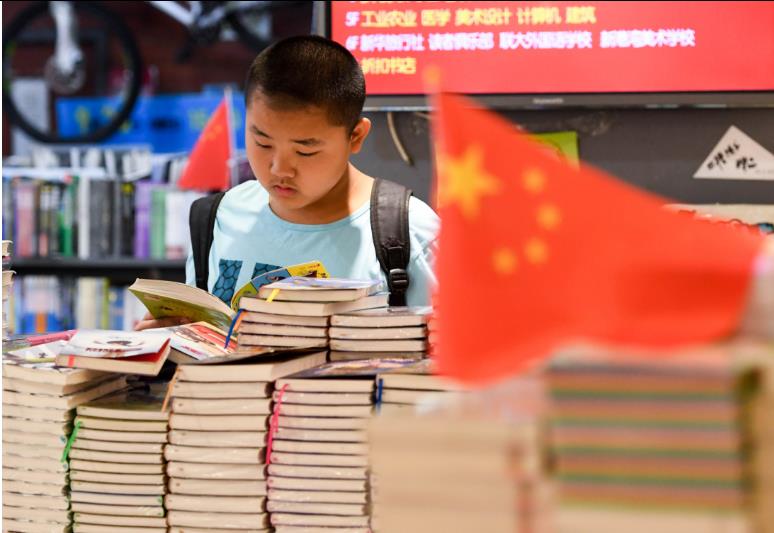Media Report

- TIME reports: "The Pew Research Center found that three-quarters of Chinese people surveyed say that China has a more important role in the world than a decade ago, and 60% of them believe that the country's involvement in the world economy is a good thing....The survey also found that 59% of the Chinese public are concerned that territorial disputes with nearby countries might lead to war....Just over half of survey respondents said they suspect that the U.S. might interfere to deny China an equal place in the world, and only 29% believe that China's rise will be accepted....More strikingly, however, about 77% of all respondents think that 'foreign influence' is something that the Chinese way of life needs to be protected from. But what occupies the mind of the Chinese public tends to be more domestic concerns, the survey revealed. High on the list is corrupt officials, the fight against which Chinese President Xi Jinping has made his top priority. Pew found that over 80% of all respondents say this is either a very big or moderately big problem."
- The Wall Street Journal: China Real Time comments: "As a wash of government spending coursed through the world's second-largest economy after a wobbly start to the year, economists have scrambled to raise their forecasts in line with Beijing's 6.5% to 7% annual growth target....Those in the crystal-ball-gazing business say forecasting economic growth in China presents unique challenges given longstanding misgivings about 'the veracity of the statistics,' as Angus Nicholson, analyst with IG Markets Limited, put it. Given that starting point, private forecasters say they're often reliant on methodology that's as much art as craft in making their own estimates. 'People have their views on China and try to find data to support it,' said Standard Bank Group economist Jeremy Stevens. 'No one in their heart trusts the official numbers completely. So everyone looks for a proxy that's not really out there.'"
- The Economist comments: "China has a richly deserved reputation for religious intolerance....In Xinjiang the government seems to equate Islam with terrorism....But there is a remarkable exception to this grim picture of repression: the Hui. China has two big Muslim groups, the Uighur of Xinjiang and the more obscure Hui. Though drops in the ocean of China's population, they each have about 10m people, the size of Tunisia. But while the Uighur suffer, the Hui are thriving....The Hui's religious diversity makes it easier for the party to tolerate them....But the real secret of the Hui's success lies in the ways they differ from the Uighur. The Uighur, of Turkic origin, are ethnically distinct. They speak their own language, related to Turkish and Uzbek. They have a homeland: the vast majority live in Xinjiang....In contrast, the Hui are counted as an ethnic minority only because it says so on their hukou (household-registration) documents...Having intermarried with the Han for generations, they look and speak Chinese. They are scattered throughout China...only one-fifth live in Ningxia. Unlike the Uighur and Tibetans, they have taken the path of assimilation....Thanks to this, they have been successful economically. They dominate halal food production....They are emerging as the favoured middlemen between China's state enterprises and firms in Central Asia and the Gulf."
Calendar
- 2016-10-05 Many in China see the U.S. as a greater threat than Islamic State, new report says
- 2016-10-04 For China, ‘Clouds Are Fading Away’ in the Philippines
- 2016-10-03 China Eyes Ending Western Grip on Top U.N. Jobs With Greater Control Over Blue Helmets
- 2016-10-02 China Factory Gauge at 2-Year High Eases Pressure for Stimulus
- 2016-09-30 China’s New Silk Road Hinges on a Small Pakistan Port
- 2016-09-29 How to Fix China’s Crooked Congress
- 2016-09-28 China’s Ambitious Plan to Make the Yuan the World’s Go-To Currency
- 2016-09-27 U.S. Says Chinese Executive Helped North Korea Dodge Sanctions
- 2016-09-26 Hong Kong and the Realities of China’s Rise
- 2016-09-23 China spends more in the world than the world spends in China
News
- TIME Chinese People Feel Good About Their Increasingly Assertive Country, Report Finds
- The Washington Post Husband fights for evidence to help US wife accused in China
- The New York Times Fox Reporter Accused of Racism for Chinatown Interviews Expresses 'Regret'
- Bloomberg Technology Uber Slayer: How China's Didi Beat the Ride-Hailing Superpower
- TIME Five Ways China Has Become More Repressive Under President Xi Jinping
- Reuters Amid South China Sea uncertainty, Indonesia stages a show of force
- The Wall Street Journal Wal-Mart Increases Investment in JD.com, China's Second-Largest Online Retailer
- The Washington Post Hungarian leader wants strategic partnership with China
- The New York Times Top-Ranked Kerber Loses to Elina Svitolina at China Open
- Bloomberg Markets Wal-Mart Boosts Stake in JD.com Moving Further Into China
- The Wall Street Journal U.S. Web Firms Lose Allure Among Chinese
- Reuters China offers 'extraordinary prize' for Europe's clubs: Inter boss
- BBC News Fast food giant Yum Brands suffers ahead of China spin-off
Commentary
- The Wall Street Journal: China Real Time The Art of Estimating China's Economic Growth
- The Economist China's other Muslims
- BBC News: China Blog Chinese people optimistic about the future, says Pew survey
- The New York Times: Sinosphere Recognizing Boarding Schools' Psychic Toll in China
- The Wall Street Journal Thailand Acts as China's Enforcer
- Foreign Policy: The Cable Half of Chinese Favor The U.S. Despite Growing Tensions
- The Diplomat China, India, Pakistan: Moving Beyond Water Wars
